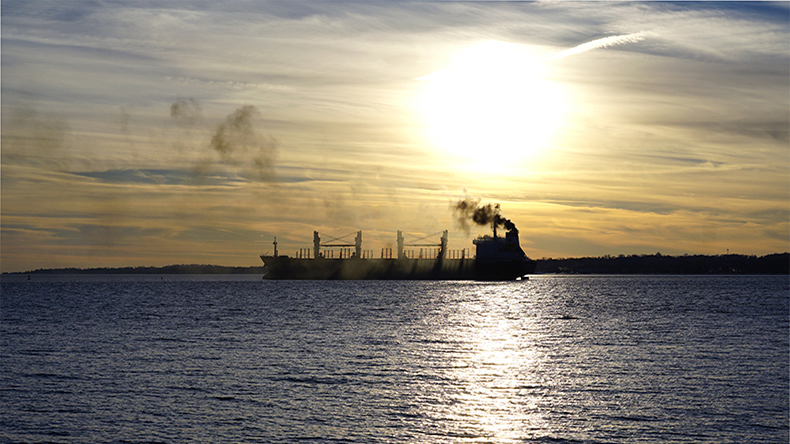Biggest backers of LNG as marine fuel behind initiative to pilot new technologies to reduce methane slip from internal combustion engines
Setting methane reduction targets and developing abatement technology for commercial scale a priority for shipowner-led coalition

REGULATORS ARE INCREASINGLY EXAMINING THE CONTRIBUTION OF METHANE TO MARITIME EMISSIONS
A COALITION has been set up to tackle methane emissions in the maritime sector as the use of liquefied natural gas as a marine fuel becomes more widely established.
The Methane Abatement in Maritime Innovation Initiative will pilot new technologies to reduce so-called methane slip from uncombusted gas in engines, which is emerging as a significant contributor to greenhouse gas emissions for LNG-fuelled ships.
Some of the biggest backers of LNG, who have invested billions of dollars in LNG-fuelled newbuildings, are members of the coalition. They include Maran Gas Maritime, Mediterranean Shipping Co, Carnival Corp, Seaspan, oil company Shell, classification society Lloyd’s Register and Knutsen Group.
Over two thirds of new ships launched by 2025 will have dual-fuel LNG engines, according to the project, which said there was a priority to set methane reduction targets and develop abatement techniques at commercial scale.
Regulators are increasingly examining the contribution of methane to maritime emissions after an International Maritime Organization study showed a 151% increase between 2012 and 2018. Carbon dioxide emissions rose by 8.4% over the same period.
Although a fossil fuel, LNG has been touted as a bridging fuel to zero-emissions shipping with vessels able to transfer to biomethane and e-methane as these zero-emissions fuels become more widely available.
“Shipping currently lacks the information and tools they need to accurately measure the amount of methane released by LNG-fuelled ships, and the extent of this impact,” said Steve Price, head of partnerships, Safetytech Accelerator. “Understanding the extent of this methane slip will allow companies, society and policymakers understand LNG’s real environmental impact. Empowering markets to channel investments to new technologies that can reduce methane slip, or to other transition fuels.”
Safetytech Accelator, a non-profit established by Lloyd’s Register and Lloyd’s Register Foundation, will coordinate the technology acceleration project with an aim to see whether biomethane or e-methane, also known as liquefied synthetic methane, would be viable tools to meet decarbonisation pathways by 2050.
The IMO has committed to a 40% reduction in carbon intensity in shipping by 2030 based on 2008 levels and to halve greenhouse gas emissions by 2050. Most of the shipping industry and the IMO’s 174 member countries have called for zero-carbon targets.
The most popular LNG dual-fuel engines are low-pressure, Otto-cycle engines, but these emit more unburned methane than high-pressure injection engines, according to studies.
The latest study by lobby group SEA-LNG showed that using LNG resulted in a 23% reduction in carbon dioxide emissions over a well-to-wake basis, but only if a specific dual-fuel international combustion engine type is used. Otto-cycle engines showed a 6% to 14% reduction over conventional fuel oil.
Of the $103bn in overall newbuilding investments in 2021, $43bn was invested in LNG-capable units, according to shipbroker Clarksons.


